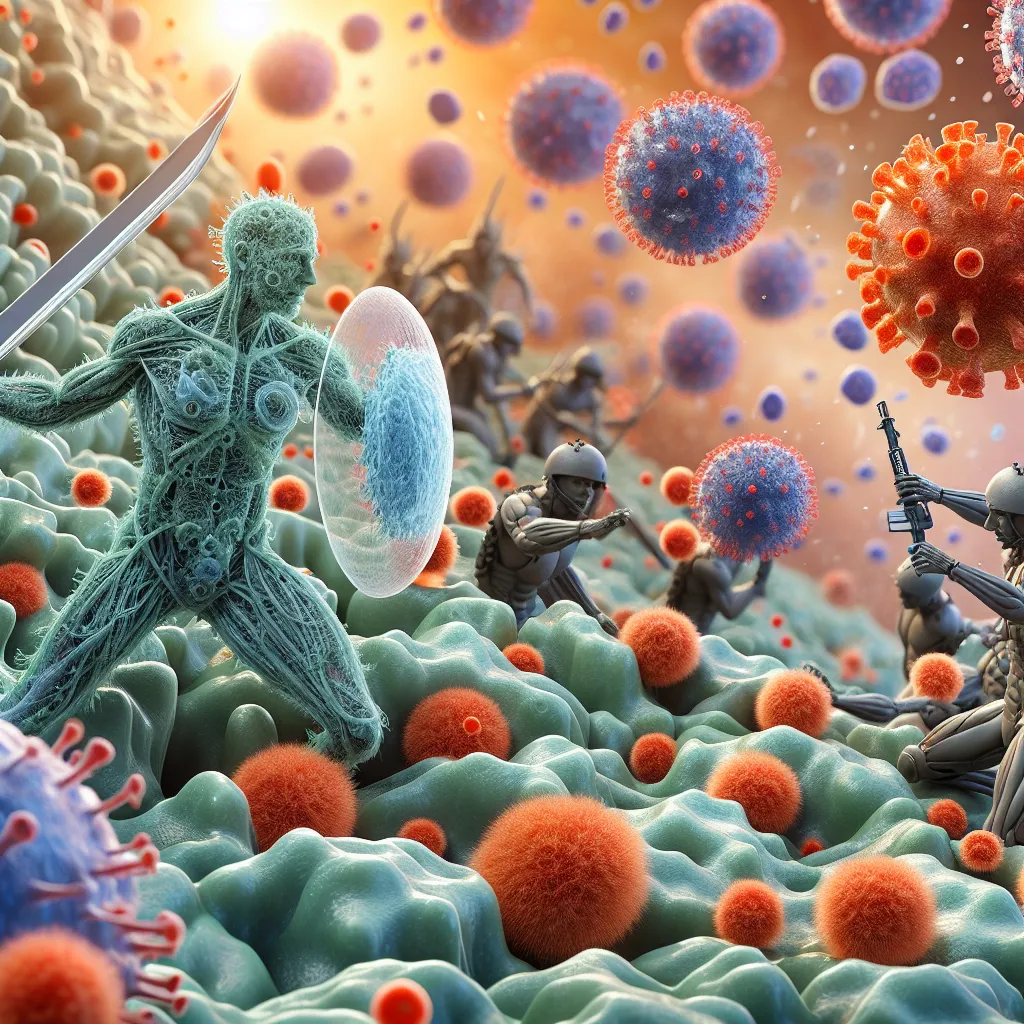The human immune system is one of the most complex biological systems we know, second only to the human brain. Yet, many of us don’t really understand how it works. Your immune system is a sophisticated network of tiny and large organs, working together to protect you. It’s like an army with soldiers, captains, intelligence officers, and even suicide bombers.
Imagine a normal day when suddenly, your world explodes with invaders. That’s what your cells experience when you get a cut. For example, you cut your thumb on a dirty twig in the park. Inside the wound, chaos ensues. Dead cells, blood, and dirt create a perfect playground for bacteria.
The first defense is your surviving cells releasing chemicals to alert your immune system. The first responders are macrophages. These cells, gigantic compared to normal cells, attack bacteria aggressively. Each macrophage can consume up to 100 bacteria before it gets tired. However, when there are too many bacteria, they call for reinforcements.
Enter neutrophils, the intense suicide warriors of your immune system. These cells rush to the scene, killing bacteria with deadly chemicals or by devouring them. They’re so eager to eliminate threats that they often destroy themselves in the process. Some even explode, creating toxic nets to trap and kill bacteria, continuing their fight even in death.
As the battle rages, your blood vessels release fluid to flood the area, a sign you’d recognize as inflammation. This fluid carries complement proteins, automated weapons that stun and kill bacteria by tearing holes in them.
If the initial defense can’t wipe out the invaders, the dendritic cells step in as the intelligence officers. They collect samples of the invaders and travel to your lymph nodes, seeking the right helper T cell. When the dendritic cell finds one, it activates it, initiating the second line of defense. This process kicks off the production of thousands of helper T cells.
These freshly cloned cells head to the battlefield, rejuvenating and inspiring exhausted macrophages. Another group of helper T cells activates B cells, which produce antibodies. These antibodies immobilize bacteria, making them easy targets for your immune soldiers.
About a week after your initial injury, your immune system surges in full force, and the bacteria are wiped out. As the battlefield clears, most immune cells self-destruct to conserve resources. However, some cells turn into memory cells, guarding against future invasions for years, possibly forever. Others keep producing low levels of antibodies, making you immune to the same bacteria.
The wound eventually heals, leaving a faint mark. You remain unaware of the epic battle that transpired inside your body. This incredible system fights enemies from cancer to the flu and keeps you alive every day. It’s a fascinating, complex story that continues to unfold within you.






